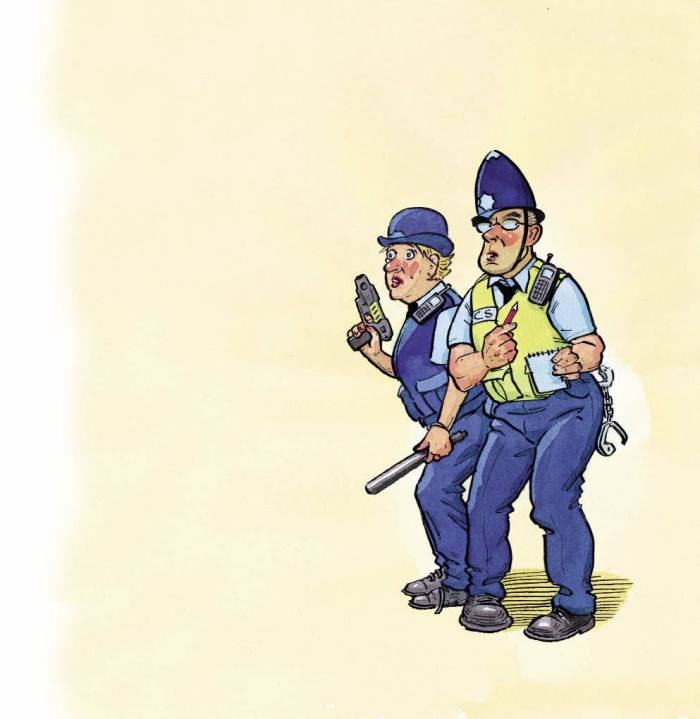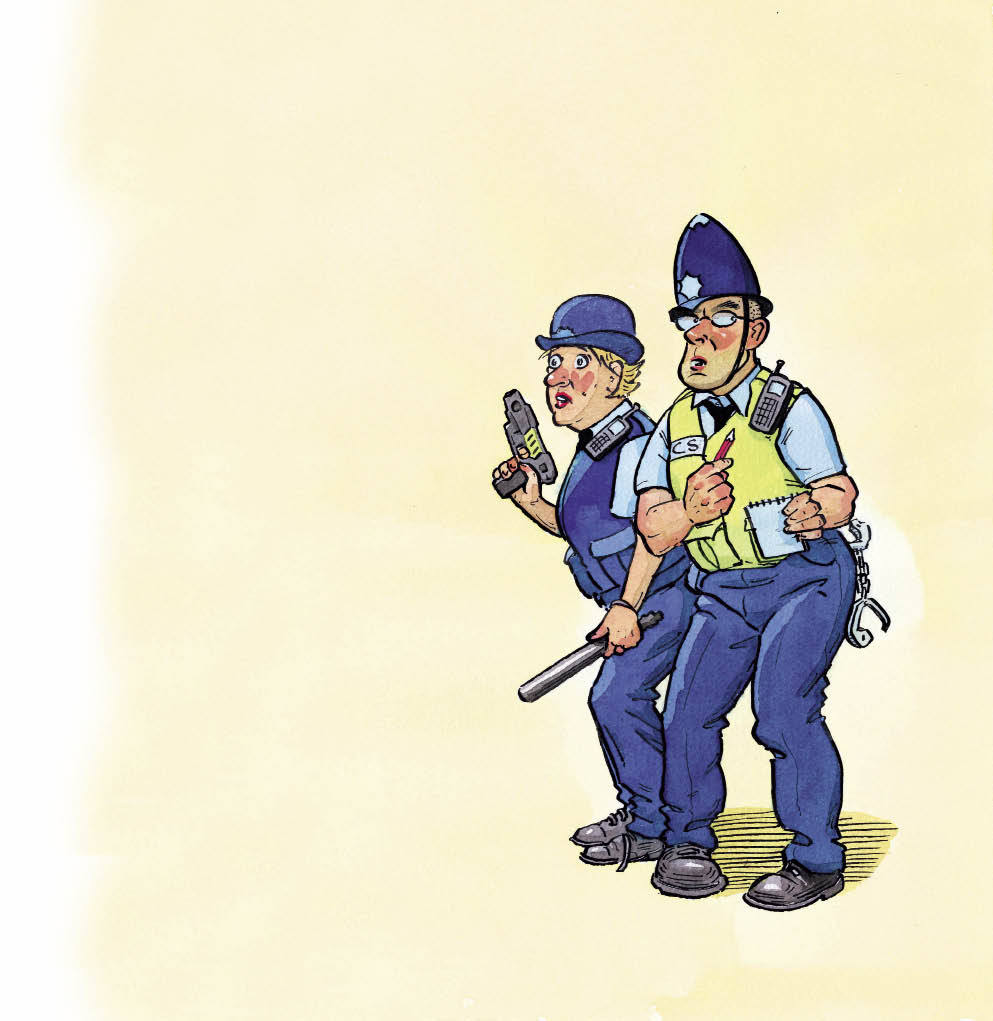The Home Office has radical plans, but they won’t come to much, says Alasdair Palmer. Less money and fewer paid officers will inevitably mean more crime
Last month when Theresa May, the Home Secretary, launched the coalition’s consultation document on the police, ‘reconnecting police with the people’, she said it would ‘herald the most radical reform of policing in this country for 50 years’.
Unusually for a politician, that was probably an understatement. If the reforms achieve what they are intended to, the nature of the police will be transformed in a way that has no precedent since a national police service was first set up over 150 years ago: control over policing will move from Whitehall and from local authorities to local citizens, reversing a century-long process of centralisation and professionalisation which has made the cops ever more remote from the rest of us.
The idea is a good one and badly needed. But there’s little chances of it actually working. The sad truth is that the coalition’s policing reform is more likely to be a failure, leaving us faced with more crime and fewer policemen.
It’s not the notion of devolving power that’s the problem. Giving people control over the police forces that are supposed to serve them is a great plan. Naturally it has been attacked (and not just by Labour: some Lib Dems have voiced the same anxiety) on the grounds that it threatens to create a police force that ‘panders to populism’. But what else, in a democracy, should the police, or indeed any state institution, do? Democracy requires trusting the people and believing that if we citizens are given the power to make major policy decisions, we will use that power sensibly and wisely — or at least with more wisdom and sense than unelected, unaccountable officials who don’t need to worry about the consequences of their actions. That’s the difference between democracy and oligarchy or bureaucratic tyranny: officials don’t rule — the people do.
The theory behind the coalition’s plan is unimpeachable. The difficulty is going to be with the practice. And here, the biggest problem is that it will have no impact on the only function the police performs that anyone cares about: their ability to reduce crime and disorder in our communities.
The changes are going to happen at a time when, to coin a phrase, ‘there is no money’. As we all know, the Home Office, and individual police forces, are expected to make spending cuts of between 18 and 25 per cent. It is not easy to see how police forces are going to manage it: around 70 per cent of their costs are the wages of the police officers they employ, and officers cannot be fired unless they are guilty of gross misconduct. Forces can stop recruiting new officers, and let ‘natural wastage’ reduce the numbers. But that is not going to reduce how much they spend by 25 per cent, and any politician who says otherwise knows he or she is telling a fib.
The coalition hopes that ‘efficiency savings’ will come to the rescue. Will they? Although you wouldn’t realise it from the rhetoric, this government isn’t the first to emphasise the importance of efficiency. No police authority wants to preside over a bloated police force. There have been efficiency drives in every police force more or less every year for the past decade.
The results have not been impressive. As the government’s proposals note, only 11 per cent of police officers are, at any one time, actually out on the streets performing ‘front-line duties’. The coalition thinks it will be possible to change that by simplifying the forms cops have to fill in, and recalibrating their rotas to ensure they spend more time on the streets.
But this solution is based on a misunderstanding of one of the most significant causes of police inefficiency: many cops don’t actually want to prowl the streets apprehending thugs. A significant proportion of the constables who stay in the office and out of danger are there not because they are reluctantly filling in forms, but because they like form-filling: it’s a lot easier than standing outside in the cold and the rain facing difficult and dangerous situations. It has proved very difficult for their superiors to push them out of the office and on to the streets. The inspectorate of police has identified alarming indications of a deterioration of discipline. Sergeants state that they are frequently unable to get constables to comply with orders, essentially because constables don’t want to put themselves in a situation they regard as dangerous. The sergeants worry they will be subject to investigation and accused of bullying if they attempt to coerce the pcs nominally under their command, so many don’t bother.
There’s no reason at all to think that directly elected police commissioners will be able to deal with this kind of problem any more effectively than the existing authority structure has been able to.
The coalition recognises that the number of paid police will diminish over the next five years. The government hopes to make up the difference with special constables, the police equivalent of the Territorial Army, who have the great advantage that they are not usually paid. But in other ways, special constables are exactly like ordinary cops: they can detain you and they can arrest you. They can also beat you up. Earlier this month, a special constable named Peter Lightfoot was convicted of causing bodily harm and of perjury after a CCTV camera caught him repeatedly thumping a prone and handcuffed soldier, and smacking him over the head with his helmet. Paid policemen can behave just as badly — but it does indicate that special constables may not be the answer to improving public faith in the force.
The other difficulty with the coalition’s special constables plan is that there is no evidence whatever that the public will respond to the call to sign up. Coalition ministers think that tens of thousands of volunteer recruits will agree to devote 16 hours a month of their precious free time to pounding the pavement hoping to catch someone in the act of committing a crime. No one else does. The number of people prepared to sign up has diminished drastically over the past 50 years. It continues to decline every year.
So some fall in the number of sworn-in officers is inevitable. It will bring to an end more than a decade of increases in police numbers: there are 10,000 more officers on active duty now in London alone than there were in 2000. There are going be fewer cops everywhere in the next five years. The total number of police officers is going to shrink significantly, possibly by more than 20,000.
Does it matter? Nick Herbert, the police minister and one of the main authors of the coalition’s policing policy, insists it does not. He has criticised what he terms ‘the old numbers game’ of measuring police effectiveness by how many police officers are on the state payroll as ‘a fraud on the taxpayer’.
But those numbers have consequences. There has been a sustained fall in most kinds of crime recorded by the police over the last decade. There have been exceptions: some forms of violent crime, sexual crimes and most kinds of fraud are up — but generally, the trend is down, with sharp falls in burglary and assault. Overall, there were more than 800,000 fewer crimes recorded in 2009 than there were in 2001. That fall was associated with an increase in the number of police officers: there were nearly 20,000 more cops in Britain in 2009 than there were in 2001.
What will happen when we lose 20,000 officers, and the average number of crimes per officer goes up from 32 (the figure in 2009) to 43? The short answer is that crime is almost bound to increase. All the evidence from Britain, as well as that from other countries such as the united states, suggests th at police numbers have a significant effect on diminishing most types of crime: fewer cops means more crimes.
Crime is also likely to increase in Britain because the reduction in police officers will happen at precisely the same time that the coalition reduces sentences for convicted criminals, and indeed sends fewer of them to prison. That is the coalition’s official policy. It is the opposite of what the Conservatives promised to do in the election campaign, but it is in line with the Lib Dems’ manifesto: in the battle to decide who would dictate prisons policy, the Lib Dems obviously won, probably because the consideration that ‘there is no money’ trumped all others, and the only way to send more people to prison is to increase the number of prison places — which costs money.
But the much greater use of non-custodial community sentences is going to have consequences for the crime rate. Criminals who are locked up can’t commit crimes against the public while they are in prison. For example, using the Home Office’s own figures, Professor Ken Pease of UCL calculates that there would be at least 60,000 fewer offences a year if each community sentence was replaced by one month in custody. Correspondingly, the more criminals who are placed in the community, the more crimes are going to be committed.
‘Reconnecting police with the people’ rightly points out that ‘the bond between the police and local people is not strong enough’. But the most important priority for both national politicians and local communities is getting crime down. By adopting policies that will push crime up, the coalition seems to be doing exactly what it has insisted it never would: ignoring the concerns of local communities.
Take for instance the goal, shared by national politicians and ordinary citizens alike, that the police should ‘bring more offenders to justice’. Labour adopted this innocuous-sounding goal as a ‘target’ for the police, and it ended up causing them enormous problems. The biggest was that it encouraged the police to focus on petty rather than serious criminals: petty criminals are the easiest to arrest, and the quickest way senior officers could increase the overall number of offenders they brought to justice was to focus on arresting petty criminals. That had the consequence that serious criminals were not being targeted by the police with the rigour and effectiveness that they should have been.
When she was Home Secretary, Jacqui Smith tried to get that target changed so that it related only to serious offences: murder, rape, wounding, gun and knife crime. But she failed. The reason was that the then Justice Secretary, Jack Straw, refused to agree to it: he pointed out that if the police targeted serious criminals, they would catch more of them, which would mean more serious criminals would be sent to prison — and there weren’t the prison places available, or the money to build them. So it was better that the police shouldn’t target serious criminals.
This was clearly a crazy result, leading to a situation where the police were deliberately set to focus on petty criminals rather than serious crimes. But given the lack of money, and the policy on prisons the coalition has decided to adopt, it is hard to see how they will be able to avoid precisely the same result. The ‘most radical reform of the police in 50 years’ may end up delivering a service which suffers from the same problems as the old one — except that it is even less effective at dealing with crime.
Alasdair Palmer is public policy editor for the Sunday Telegraph.







Comments